A green e-bike tour of Sussex’s vineyards
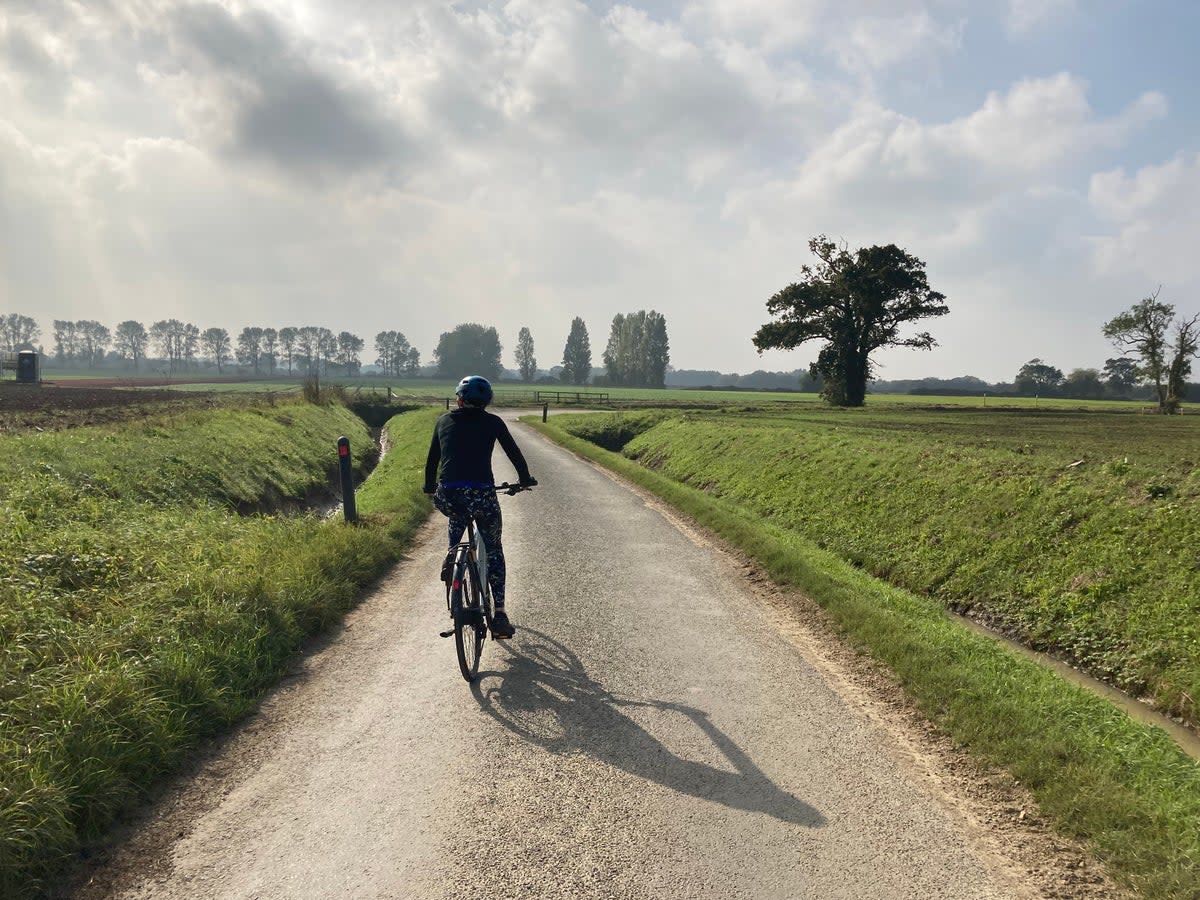
From the balcony of the dining room at Ashling Park’s vineyard, I can see the sun setting over the 200-year-old oak trees, and the golden glow of the Chardonnay vines sprawled out in neat lines beneath me.
My main course is being served – South Downs pigeon breast with Chichester-sourced baby veg and a blackberry-red wine sauce, paired perfectly with the red berry notes of Ashling Park’s sparkling rosé. I’m savouring my first mouthfuls when the chef comes over to tell me that everything on the menu (and of course in my glass) is sourced from within a 15-mile radius of where I’m sitting – except the vanilla for the panna cotta.
Compare that with the average restaurant roast dinner – coming in at close to 10,000 food miles in total – and you’ll start to understand why that’s such an impressive claim.
The chef comes over to tell me that almost everything on the menu (and in my glass) is sourced from within a 15-mile radius
It’s a recurring theme of my idyllic weekend away in Sussex, where I’m exploring a wine route on two wheels – a pride in showcasing what’s local, and a dedication to leaving a light footprint on the environment. As one of the sunniest areas of the UK – sharing the same soil found in Champagne and parts of the Loire and Burgundy – the county has become a British hive of vinous activity.
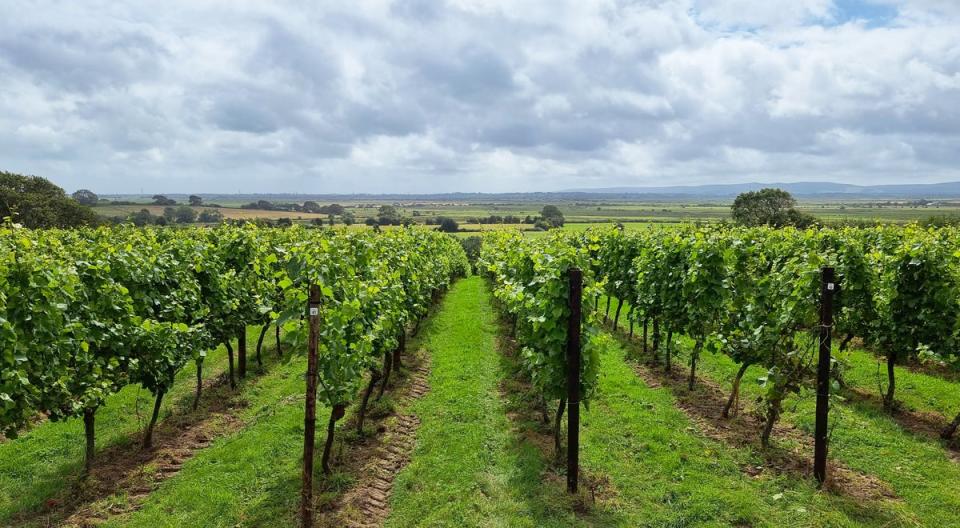
With more than 139 vineyards across both the east and west stretches of the county, it’s the most densely vineyard-speckled wine region in Britain – and, as such, demands for oenotourism have started to soar.
With one eye on giving the customer what they want, and another on the growing demand for green travel, a local tourism board launched an official, self-cycling route for trying its best tipples in 2021 – the Great Sussex Way Wine Cycle Route.
Linking several of the vineyards together, tourists can either bring their own bikes to complete the trail, or hire some from a local rental operator such as Southern eBike Rentals (whose electronically-boosted ebikes take some of the strain once you’ve had a few glasses). Having not owned a bike since the Spice Girls first topped the charts, I opt for the easier, electrically assisted version and am guided through the flint-adorned villages and murmuring wheat fields by Southern Ebikes owner Olly Evans.
The cycle from Ashling Park to Tinwood Estate is a leisurely nine-mile skim along largely flat roads – but for those more daring or with stronger thigh muscles than me, Olly can personalise your tour to make it more adventurous. That way you can tackle the more challenging peaks and troughs of the South Downs, take in more vineyards along the way, or go the very long way around to work up an appetite.
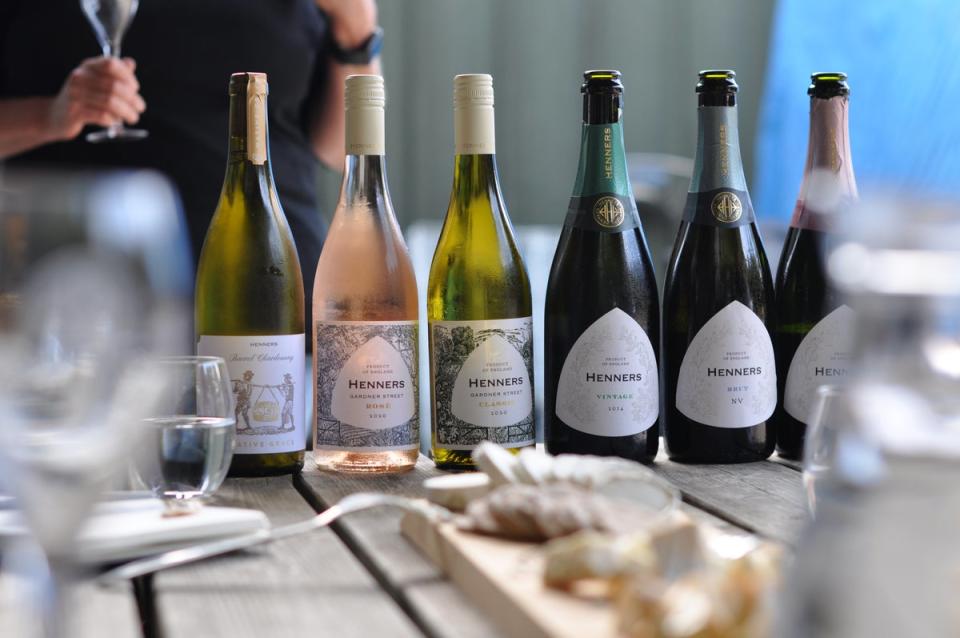
It’s not just healthy and delicious, it’s also a sustainable way to see this pretty, rural county.
Open to the public until 1 October and then again from 5 November with a seasonal programme of events, tours and dining experiences, Henners vineyard boasts an official “Sustainable Wines of Great Britain” accreditation from WineGB (the national body for grape growers and winemakers).
To receive this stamp of approval, wineries are monitored and audited for three years on criteria such as minimising pesticides, improving site design to reduce environmental impact, and promoting biodiversity.
“Unless we work regeneratively and collectively there won’t be an English wine scene and because we are in many ways a new area for viticulture we get to enshrine that in UK wine from the start,” said Rebecca Apley, Henners’ commercial manager.
WineGB recently launched a ‘Sustainable Wines of Great Britain’ accreditation – and seven of the 23 vineyards granted it so far are in Sussex
“We know that people really care about the environment so we hope our credentials will encourage them to come and visit us to learn more about why it’s so important for us to work in harmony with nature.”
With the installation of an electric vehicle charging park in their car park, Henners are putting their money where their mouth is, and will also offer a self-guided tour exploring the story of ecology, focusing on the works of Thomas Bewick – a natural historian and naturalist who inspired the name of their Native Grace range.
The Sussex wineries’ approach to sustainability is mirrored by the area’s food producers, many of whom are at the forefront of the local food revolution.
Eager to learn about (and taste!) other Sussex produce I try Farmer, Butcher, Chef – the flagship restaurant of Goodwood Estate.
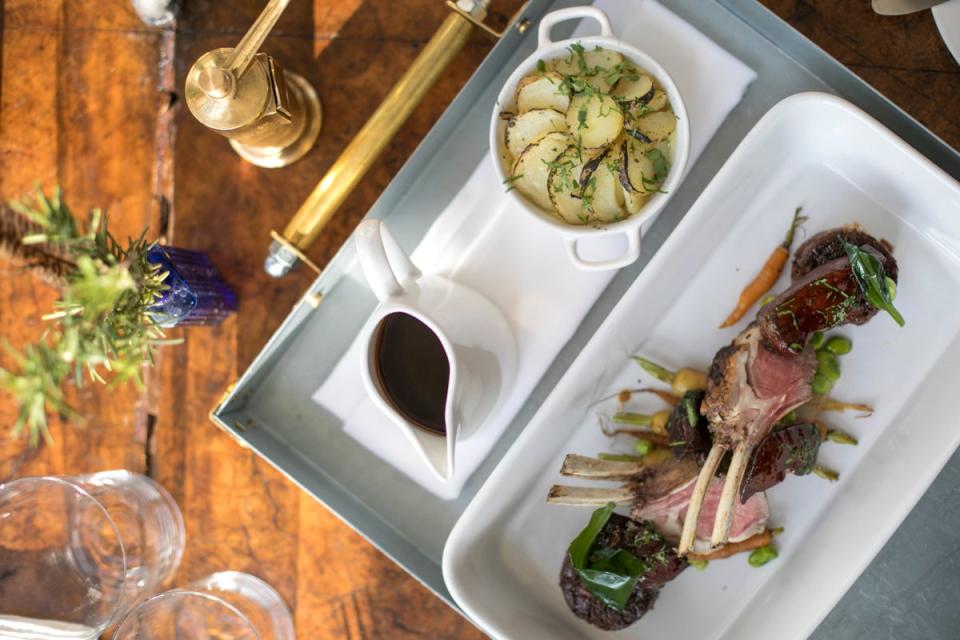
At 12,000 acres the Goodwood Home Farm, a literal stone’s throw from the restaurant, is one of the largest lowland organic farms in the UK and one of the only self-sustaining organic farms in Europe.
Studying the menu I see something called the “Butcher Board”, a seasonally-changing sharing platter that makes use of underused or often-discarded cuts of meat such as shin, triceps and neck, for minimum waste.
“Our menu is uniquely designed where we can control every aspect of our produce,” says Andrew Coggings, Goodwood’s entertaining and hospitality managing director.
“Our butcher is directly involved in designing dishes according to what cuts are available rather than the other way around – an original approach that means nothing is wasted.”
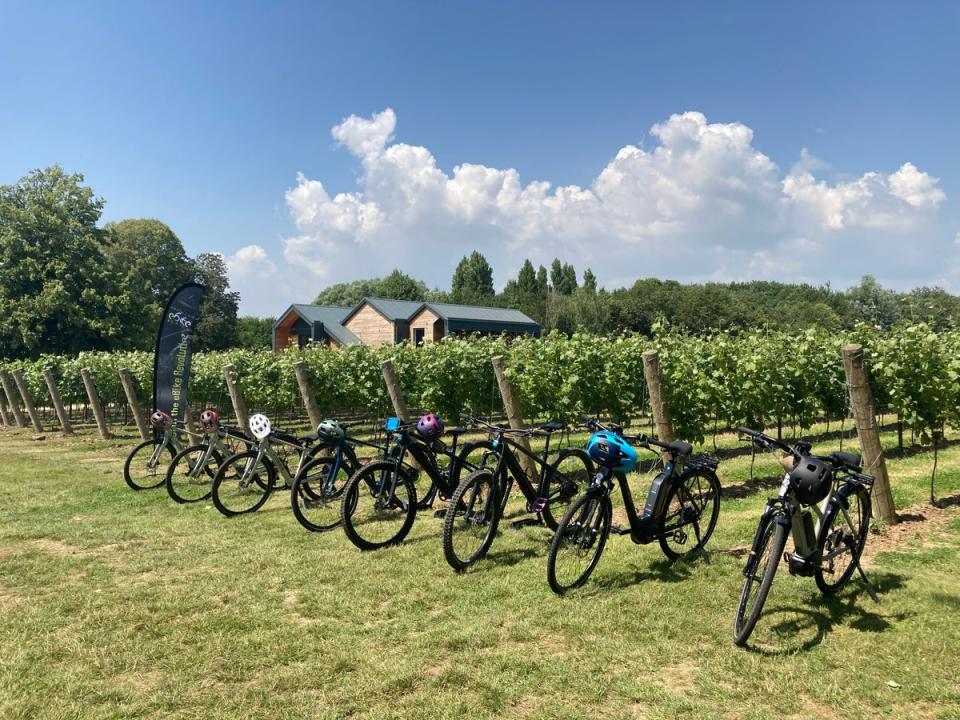
Estimates by The Waste and Resources Action Programme (Wrap) suggest that about 380,000 tonnes of consumable meat are thrown away each year in the UK; aside from any financial implications, the greenhouse gas emissions of this waste equates to 4 million tonnes.
As my meal at Goodwood demonstrates, shunning prime cuts of meat for a more nose-to-tail approach isn’t just an ethical decision – it also gives a greater range and depth of flavour to the dishes.
Goodwood’s ‘Butcher Board’, a seasonally-changing sharing platter, makes use of underused or often-discarded cuts of meat such as shin, triceps and neck
Finally, my weekend comes to an end the way I like to finish any meal – with a cheese board.
I take a bite of each of Goodwood Estate’s homemade cheeses; a firm and slightly tangy Charlton, a rich Molecomb Blue and a buttery soft Levin Down.
Looking around at the walls of the restaurant, decorated with old pieces of farming equipment and nature-inspired design details, I realise that one thing unites all the people I’ve met this weekend, from winemakers to restaurateurs – a love and respect for everything that comes from the land here, and a commitment to preserving it.
Travel essentials
Visit Sussex has information on the Great Sussex Way wine route; bring your own bike or try Southern eBike Rentals from £40 per half day. Entry and tour fees for the wineries range from £21 to £25.

 Yahoo News
Yahoo News 
